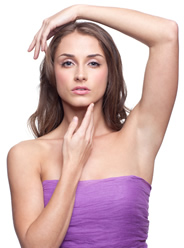
by Paul J. Rosen, J.D., L.Ac., EAMP
 The more you look the more you see. Have you ever noticed that when you buy a new car you see more of them on the road? This goes for a blouse or a pair of shoes as well? Well, what I’ve been noticing a lot more of lately is deception in advertising.
The more you look the more you see. Have you ever noticed that when you buy a new car you see more of them on the road? This goes for a blouse or a pair of shoes as well? Well, what I’ve been noticing a lot more of lately is deception in advertising.
While I was researching for my latest book, Be Healthy Now ~ for Women, I came across the title Toxic Beauty, a book written by Dr. Samuel Epstein, who is a well-known expert in the field of cancer causing agents. Wow, this book is an eye opener. What jumped out at me?
There are over 10,500 personal beauty and cosmetic products available in North America. Ninety-nine percent of them have at least one ingredient that has never been tested for safety.
Now get this: The phrase “For professional use only” that we find on so-called higher quality beauty products allows manufacturers to keep any harmful chemicals off the labels. They may still be in the products ~ but just not on the labels.
Finally, the terms “hypoallergenic,” “allergy-free” and “safe for sensitive skin” can be placed on products without actual testing and neither the FDA nor any other regulating body even requires the companies to prove their claims.
Now that we’ve established that we are left almost completely in the dark about product safety and their effects on your health, here is why you should care.
 Your skin is the largest organ of your body. And your skin’s health is a reflection of the health of your kidneys. This means that if you are having skin problems like psoriasis, acne or eczema you should look to your kidneys as part of the strategy to clean things up.
Your skin is the largest organ of your body. And your skin’s health is a reflection of the health of your kidneys. This means that if you are having skin problems like psoriasis, acne or eczema you should look to your kidneys as part of the strategy to clean things up.
And speaking of skin, deodorants often contain aluminum to stop perspiration and propylene glycol as a drying agent. Aluminum has been associated with chronic health conditions including chronic bladder problems like interstitial cystitis, Alzheimer’s and Parkinson’s diseases.
Propylene glycol is the main ingredient of anti-freeze ~ the colored liquid you pour into your car’s radiator to prevent engine freeze-up. Safety warnings associate propylene glycol with liver abnormalities and kidney damage.
Chemicals and foods called estrogenic are capable of altering your hormone balance and they find their way into beauty products. For those who choose natural products, soy is a common ingredient. Soy is also associated with altering hormone balance and not always in a positive way. But don’t tell the soy lobbyists.
So, if you’re struggling with menstrual irregularities, stubborn menopausal symptoms, irritability, blue moods, dry skin, thinning hair and fatigue, look no further than your lipstick, face and body creams, soaps and detergents as potential parts of the problem.
Fortunately, there are many safe options. Coconut oil and olive oil for skin care, mineral make up for color and soy-free biodegradable soaps and detergents for house cleaning and laundry are good places to start.
Deception is a marketing norm. We see it every day. And as responsible consumers, we must become knowledgeable about the products we use.
– Paul J. Rosen, JD, LAc, EAMP is the clinic director of AcuNatural Family Healthcare and a licensed acupuncturist in Portland, Oregon and Vancouver, Washington. His expertise extends to nutrition as a certified master of Nutrition Response Testing. After 20 years of practice his chosen specialty is designing nutritional healing programs for folks suffering with chronic and degenerative illness. He is the author of three books: The Great Health Heist, Be Healthy Now ~ Your Passport To Wellness and Be Healthy Now ~ for Women. Paul is also a local radio personality and host of “Health Matters”. His show can be heard each Sunday from 8- 10 AM PST on AM860 KPAM. Paul is available for public appearances and speaking engagements. Contact him at 360-750-7375 or via his website at www.acunatural.com
